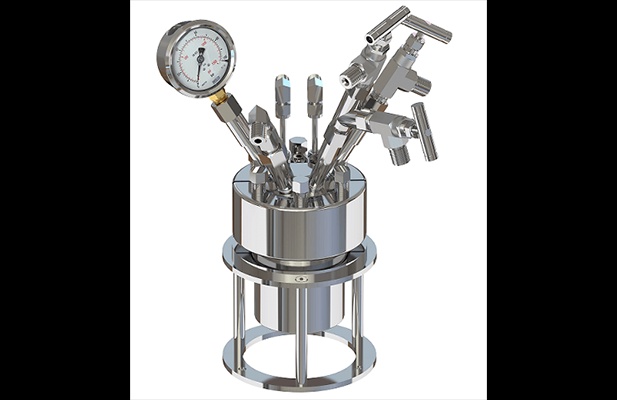Introduction
Chemical manufacturing and synthesis are at the heart of various industries, from pharmaceuticals to petrochemicals, where intricate reactions and processes shape the production of essential products. One key element that has revolutionized these industries is the high-pressure vessel. These vessels play a pivotal role in enabling scientists and engineers to manipulate chemical reactions under elevated pressures, leading to enhanced yields, improved selectivity, and novel products. In this blog post, we delve into the significance of high pressure vessel in chemical manufacturing and synthesis.
Enabling Unique Reaction Conditions
High-pressure vessels allow researchers to create unique reaction conditions that are not achievable under standard atmospheric pressures. Elevated pressures alter the thermodynamics of reactions, enabling the synthesis of compounds that might be unattainable under normal conditions. These vessels are particularly valuable in the creation of high-performance materials, such as advanced polymers, specialty chemicals, and catalysts, where pressure can influence molecular structures and properties.
Improved Yield and Selectivity
In many chemical reactions, increasing pressure can lead to improved reaction kinetics, higher yields, and enhanced selectivity. High-pressure vessels provide an environment where reactants are forced into close proximity, increasing the likelihood of collisions and successful reactions. This is especially advantageous in cases where reactions are slow or produce multiple side products. By carefully adjusting pressure conditions, researchers can steer reactions toward desired products, reducing waste and improving efficiency.
Exploration of New Reaction Pathways
High-pressure conditions can prompt reactions to follow new and previously unexplored pathways. This opens doors to discovering novel molecules and compounds with unique properties. Industries like pharmaceuticals benefit greatly from high-pressure vessel technology, as it allows for the synthesis of complex drug molecules that were previously challenging or impossible to produce using conventional methods.
Catalyst Development and Optimization
Catalysts are essential components in many chemical processes, facilitating reactions and enhancing efficiency. High-pressure vessels enable researchers to study catalyst performance under realistic conditions, mimicking the pressures present in industrial reactors. This aids in the development and optimization of catalysts, leading to more efficient and sustainable chemical processes.
Supercritical Fluid Reactions
Supercritical fluids are unique states where substances exhibit properties of both liquids and gases. High-pressure vessels are crucial in creating and maintaining supercritical conditions, which can significantly alter the solvation and reactivity of compounds. This is particularly relevant in extraction processes, where supercritical fluids are used to extract valuable compounds from raw materials like plants and waste streams.
Hydrogenation and Specialty Chemicals
Hydrogenation, the process of adding hydrogen to molecules, is a common reaction in various industries, including petrochemicals and food production. High-pressure vessels are essential for conducting hydrogenation reactions efficiently and selectively. They enable the use of high pressures of hydrogen gas, leading to increased reaction rates and better control over the desired product.
Safety Considerations
While high-pressure reactions offer numerous advantages, they also present safety challenges. a high pressure reactor vessel must be designed, manufactured, and operated with stringent safety measures in mind. Advanced materials and engineering techniques ensure that vessels can withstand the stresses generated by elevated pressures. Additionally, safety relief systems and pressure monitoring mechanisms are incorporated to prevent overpressure situations.
Conclusion
High-pressure vessels have transformed the landscape of chemical manufacturing and synthesis, empowering researchers and industries to push the boundaries of what is possible in terms of reaction conditions and product outcomes. By enabling the exploration of new reaction pathways, enhancing yield and selectivity, and facilitating the development of catalysts, these vessels have become indispensable tools for driving innovation across a spectrum of industries. As technology advances and our understanding of high-pressure reactions deepens, the role of high-pressure vessels in chemical manufacturing and synthesis is poised to continue shaping the future of scientific discovery and industrial progress.


No comments yet